Life in the wild can be both breathtaking and merciless, as seen here with an elephant and lion cubs. All creatures ranging from the most powerful elephants to the craftiest lionesses, must navigate a precarious survival balance.
Part 1: Elephant vs. Lions

An elephant lunged toward a lioness and her three defenseless cubs in a moment caught on camera. The elephant was bearing down on the lioness with no signs of slowing down and the tension in the air was tangible. The lioness grabbed her one cub and tried to run away in a last-ditch attempt to save her young.
Part 2
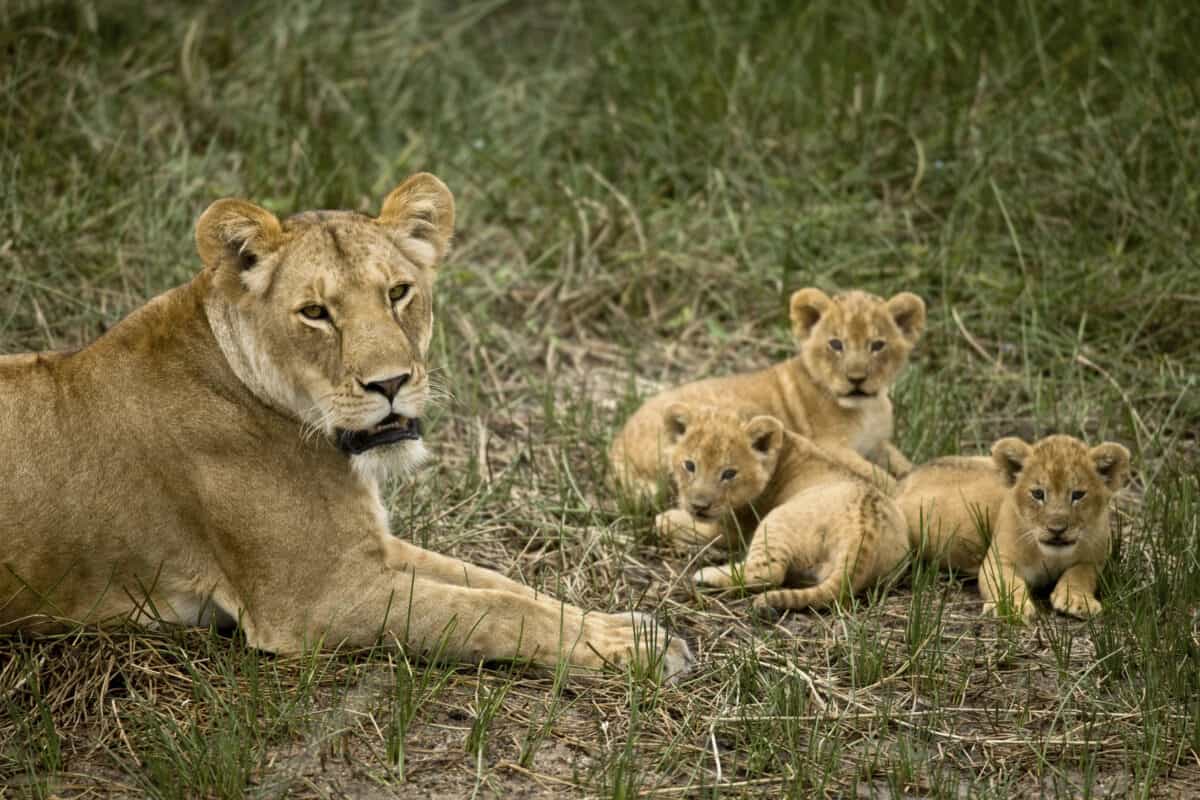
Despite sustaining injuries to her front paw the lioness displayed remarkable resilience – sprinting to keep her cubs safe from the looming threat. The charging elephant, however, defied expectations. Just as it neared the vulnerable cubs, it abruptly halted its advance.
A Surprising Turn
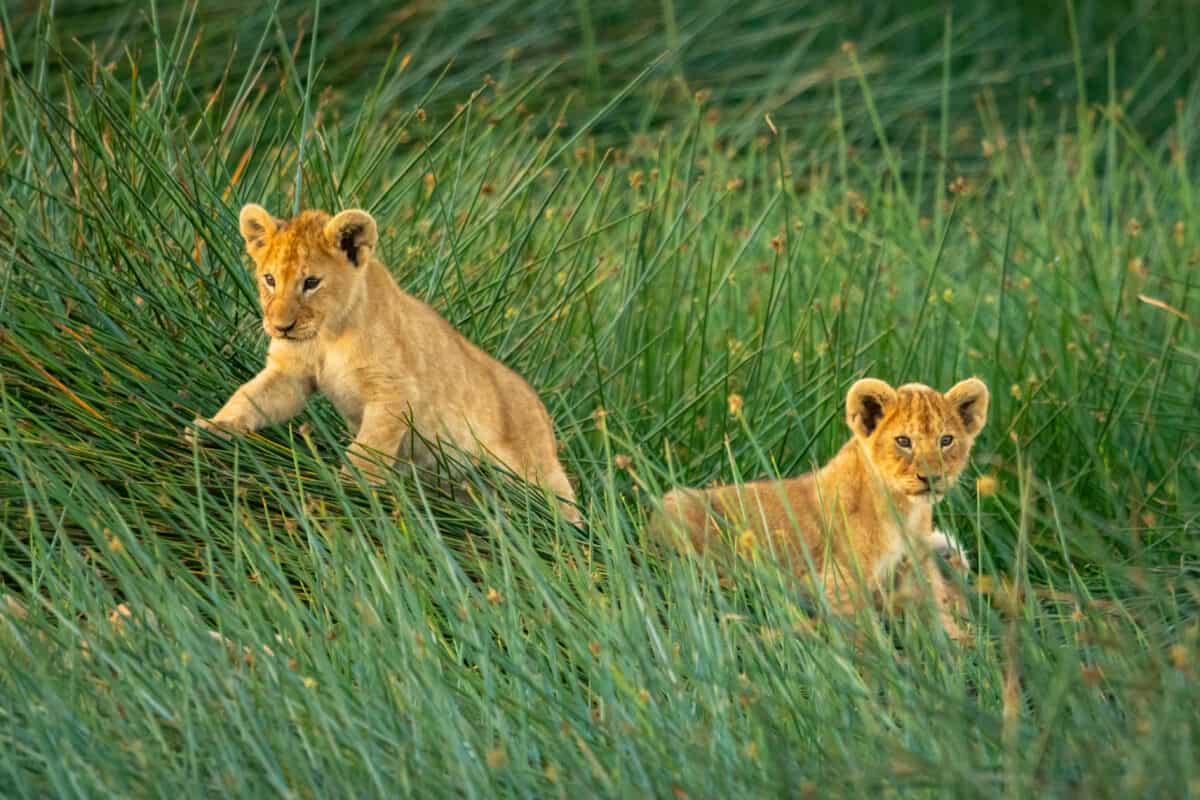
The elephant took a choice choosing not to crush the helpless young lions. It pivoted avoiding the lioness and her cubs, who remained unharmed. Instead of violence, an unexpected act of empathy had resolved the tense standoff.
Reflections on Nature
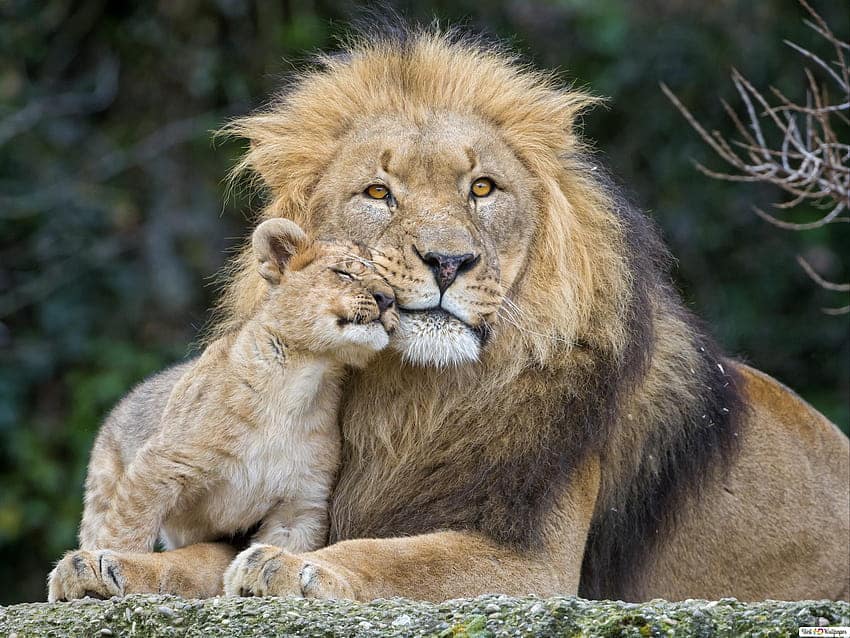
In this extraordinary moment we glimpse the complexity of the animal kingdom. While survival instincts drive much of their behavior, so too does empathy. The elephant’s decision to spare the lion cubs speaks widely about the depth of emotional intelligence found in the natural world.
Wrapping Up with a Big Elephant Spares Lion Cubs
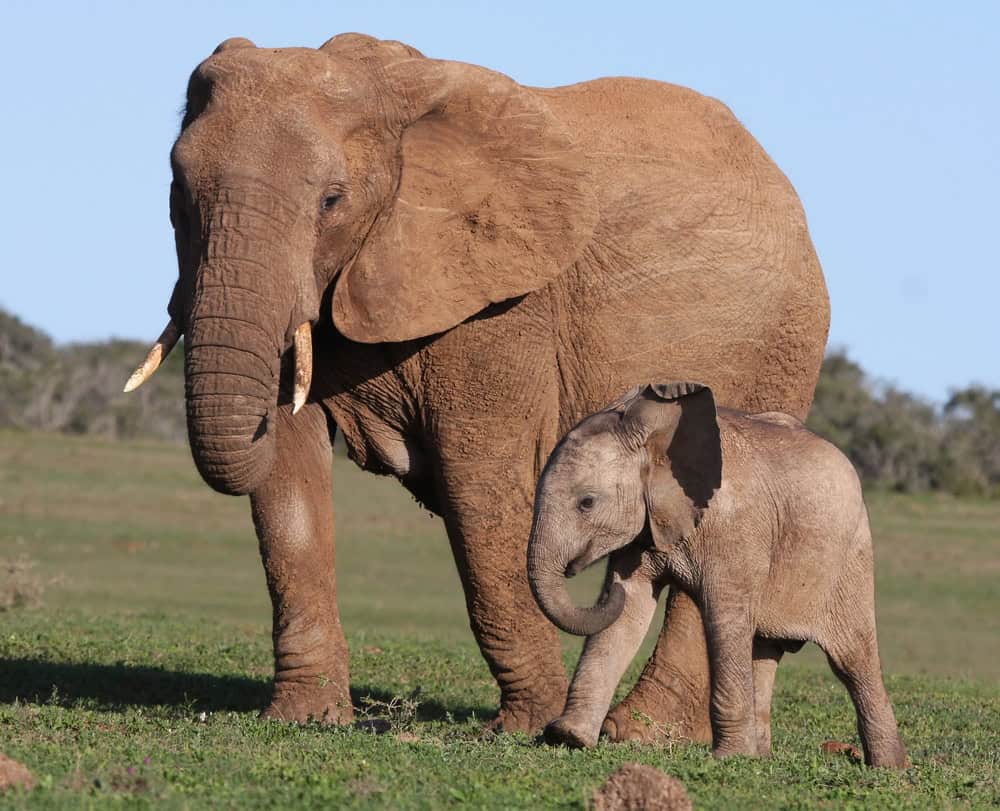
From such encounters, as observers of nature we can learn important lessons. Even the most unlikely divides can be overcome by empathy in the face of adversity. Moments of compassion amid the struggle for survival in the heart of the wild serve as a reminder of our common humanity.
How do lions hunt?

Lions hunt in groups called prides. They use teamwork to ambush prey, often hunting at night. Their success depends on strategy, cooperation, and timing.
What do lions eat?

Lions primarily eat large herbivores such as zebras, wildebeests, and buffaloes. They occasionally consume smaller animals, scavenging when opportunities arise.
How do lions communicate?

Lions communicate through vocalizations, facial expressions, and body language. Roaring helps establish territory and maintain social bonds within the pride.
What is the Social Structure of a Lon Pride?

A lion pride typically consists of related females, their offspring, and a few adult males. Females cooperate in hunting and raising cubs.
How long do lions live?

In the wild, lions live about 10-15 years. In captivity, they can live up to 25 years, due to consistent food and medical care.
How do elephants use their trunks?

Elephants use their trunks for breathing, smelling, touching, grasping, and producing sounds. It is an incredibly versatile and essential tool for their daily life.
What do elephants eat?

Elephants are herbivores, consuming grasses, fruits, bark, and leaves. They spend most of their day eating to meet their high caloric needs.
How long do elephants live?

Elephants live around 60-70 years in the wild. In captivity, they may live slightly longer due to better access to food and medical care.
How do elephants communicate?
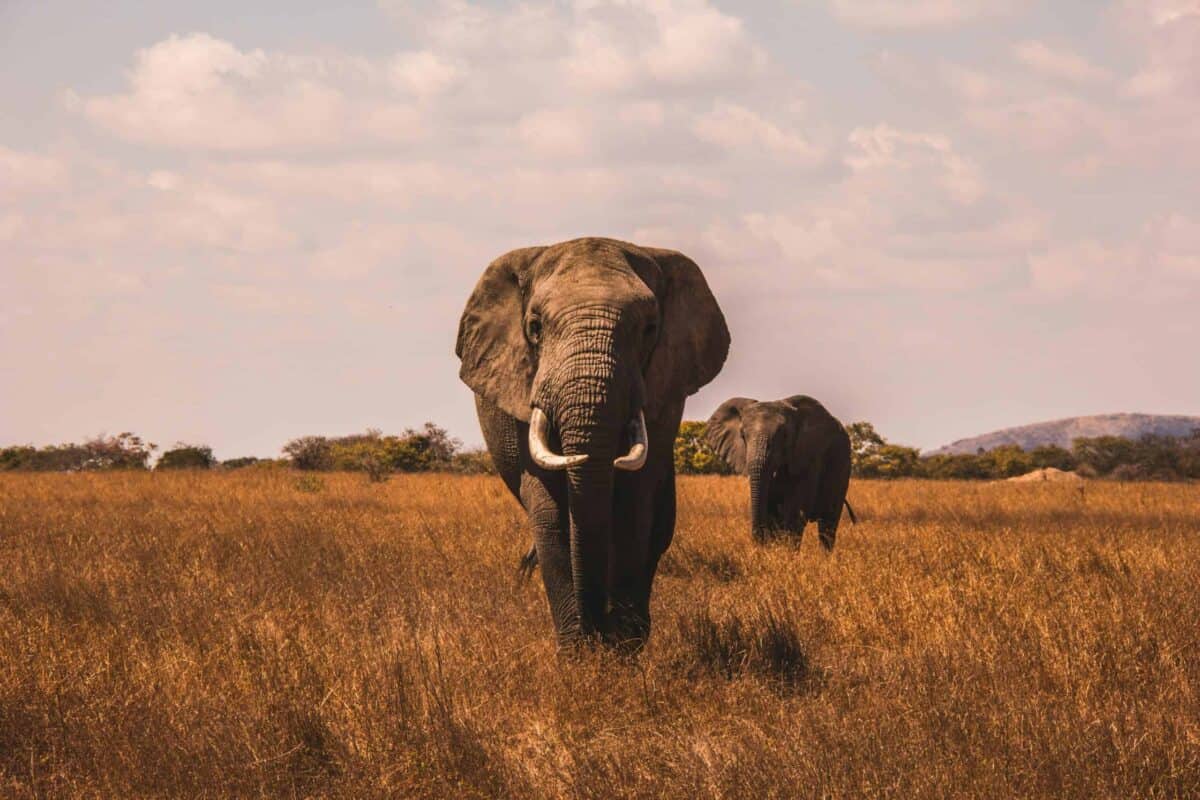
Elephants communicate through vocalizations, such as trumpeting and rumbling, as well as body language and tactile signals like touching with their trunks.
What is the Social Structure of Elephant Herds?
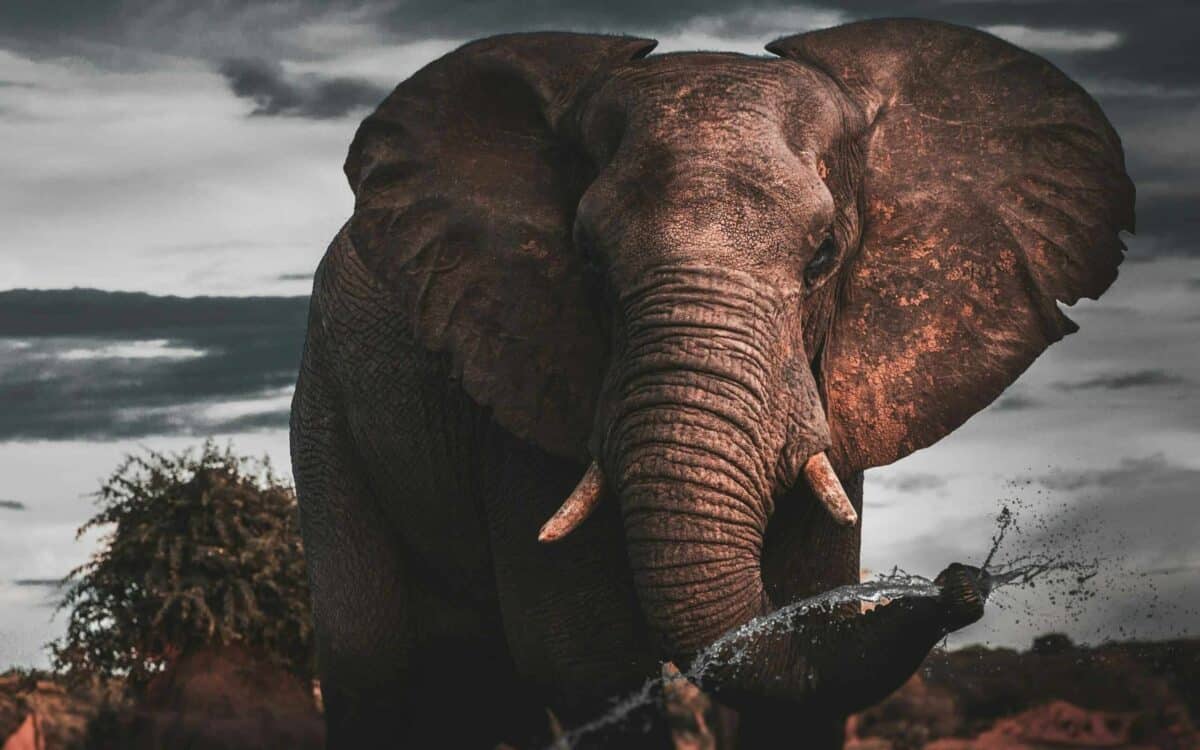
Elephant herds are matriarchal, led by an older female. Herds consist of related females and their young. Males leave the herd upon maturity.
Why do elephants have large ears?
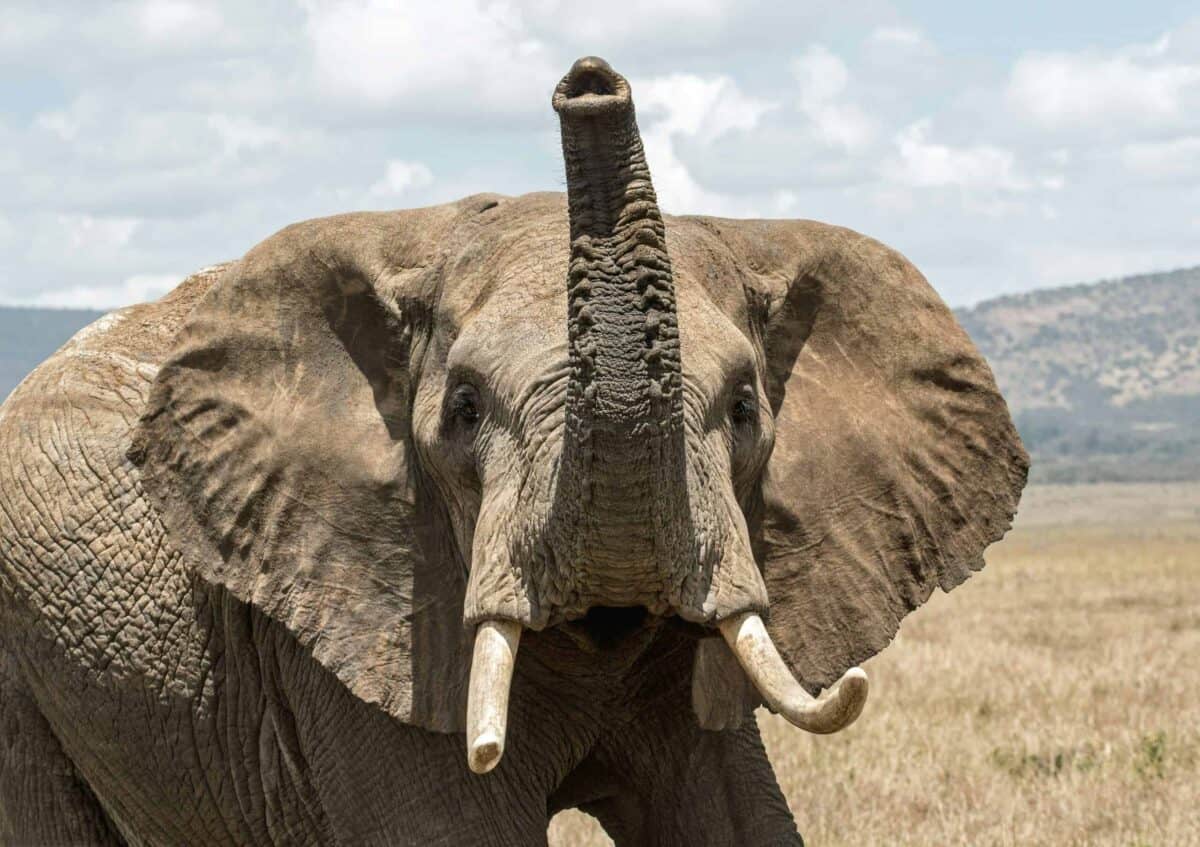
Elephants have large ears to help regulate their body temperature. The ears act as fans, dispersing heat and cooling the blood.
How Do Lions Mark their Territory?
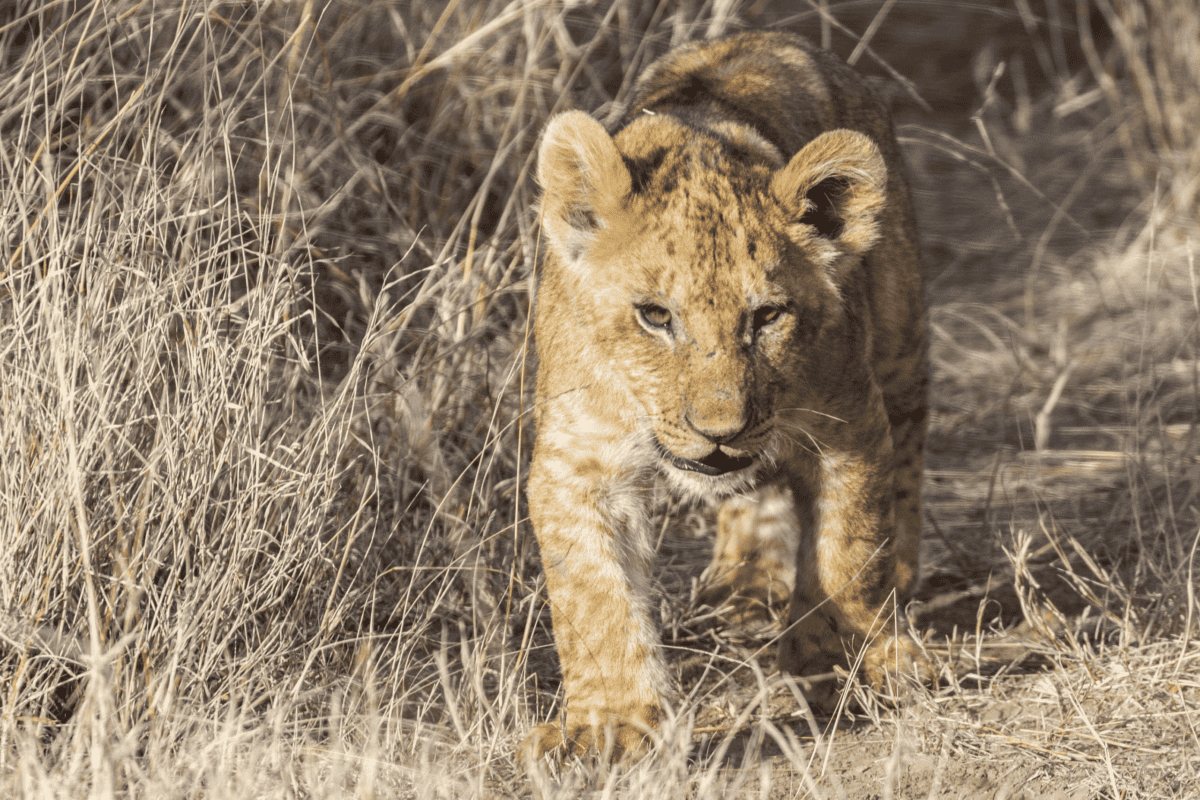
Lions mark their territory by urinating and rubbing their scent on objects. This behavior signals to other lions to stay away.
What Role Do Elephants Play in their Ecosystem?

Elephants play a crucial role in their ecosystem by dispersing seeds, creating water holes, and maintaining open grasslands through their feeding habits.
Why are Lion Populations Declining?

Lion populations are declining due to habitat loss, human-wildlife conflict, and poaching. Conservation efforts are critical to ensure their survival.
Why are Elephants Important to Biodiversity?

Elephants are keystone species, meaning their presence impacts the entire ecosystem. Their activities shape habitats and benefit many other species.
- Largest Yellow-Bellied Sea Snake Ever Recorded - August 16, 2025
- Discover The Oldest Chinchilla Ever - August 16, 2025
- Discover The Largest Spider Ever - August 15, 2025

